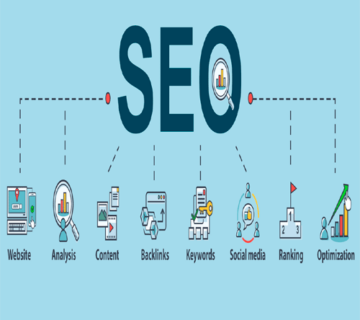The Ai and aerospace industry and aerospace market is highly fragmented and serves various military, commercial aviation, and space exploration sectors.
Ai and aerospace industry
The aerospace market is highly fragmented and serves various military, commercial aviation, and space exploration sectors.
Rapid growth in the global aviation industry has compelled industry players to ensure safety, dependability, and customer loyalty. Artificial intelligence (AI) in the aerospace industry can help companies streamline manufacturing while also addressing safety concerns. Artificial intelligence can streamline and simplify analytics, system management, customer service, and various other processes and activities.
ََAerospace industry
The aerospace industry spans various levels of development, manufacturing, maintenance, and support of aircraft, spacecraft, and rotorcraft. It is a mission-critical industry, and its success depends on components that need to be highly reliable and accurate. Due to this, the industry needs to constantly improve its manufacturing processes, reduce labor costs and human errors, monitor the health of devices inside the aircraft, and effectively address safety issues. Aerospace has always struggled to keep up with the latest technology trends due to its long regulatory cycles. All the bottlenecks mentioned above can be addressed by implementing Artificial Intelligence. The caveat here is that the algorithms need to be highly intelligent and reliable. Artificial intelligence and its computational capabilities for data interpretation can streamline and simplify analytics, system management, customer service, and various other processes and activities. Artificial intelligence has already demonstrated promise in several other industries, such as banking, advertisement, retail, and health. AI systems can analyze inputs from various assets and process vast amounts of data faster than manually.

Applications of Artificial Intelligence Systems in the Aerospace Industry:
Smart Maintenance
Maintenance is essential to ensure the efficient functioning of the aircraft. Since servicing is typically conducted on a scheduled basis, the process can be time-consuming and incommodious. Unexpected glitches or malfunctions can result in a significant loss of resources and time. Predictive analytics sifts through data from sensors and reports, interpreting and sorting it. As a result, algorithms can detect and track possible faults in real-time and forecast the most appropriate repair times, resulting in more intelligent maintenance schedules.
Better fuel efficiency
Aerospace companies place a high emphasis on fuel quality. We can cut fuel consumption by 5 to 7 percent with the aid of AI systems.
Better Customer Experience
AI is one of the ways that airlines can improve their customer engagement and deliver exemplary customer support. Chatbots are an example: AI-based automated platforms that can respond to consumer inquiries in real-time and human-like ways.
Training
The use of virtual reality (VR) and augmented reality (AR) platforms as a teaching tool for pilots and engineers is rising in popularity. AI is a crucial component of these platforms. Artificial intelligence can be used to improve pilot training facilities by providing a suitable simulation environment to pilots.
Preventive Maintenance
Using historical data and predictive analytics, AI is frequently utilized in aircraft engineering to track, schedule, and manage maintenance.
Conclusion
Artificial Intelligence has the potential to bring about a paradigm shift in the aerospace engineering sector. From design optimization and manufacturing to autonomous systems and maintenance, AI is poised to transform the industry in various ways. Embracing AI technologies can lead to safer, more efficient, and environmentally friendly aerospace systems. As the aerospace industry continues to innovate and push boundaries, AI will undoubtedly play a critical role in shaping its future.








No comment